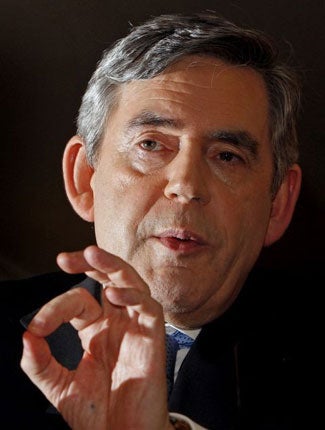Now it's time for the Commons clean-up
Party leaders agree to end principle of self-regulation at Westminster, with new speaker to be elected next month after Michael Martin resigns

Party leaders united last night in an attempt to clean up Parliament on a day which saw Michael Martin become the first Commons Speaker for more than 300 years to be forced out of office.
Shamed into action by the scandal over MPs' expenses, Gordon Brown and leaders of rival parties approved urgent reforms that they hope will start to rebuild the public's trust in their discredited politicians.
The leaders agreed in principle to end the system under which MPs regulate themselves – and oversee the staff who pay their allowances. The Commons Fees Office, which has been accused of colluding with MPs to help them to exploit the expenses system, will be abolished and replaced by an independent regulator.
The Speaker chaired the talks only 90 minutes after he bowed to the inevitable and announced he would retire on 21 June. MPs will elect a new Speaker in a secret ballot on 22 June.
In a frenzied atmosphere at Westminster, MPs began lobbying support for possible candidates to succeed Mr Martin as Speaker. Senior figures said the early front-runners appeared to be Sir George Young, a former Tory minister; Sir Menzies Campbell, a former Liberal Democrat leader and Frank Field, a former Labour minister.
Mr Brown is believed to have urged Mr Martin to reflect on his position at a private meeting on Monday soon after the Speaker suffered the humiliation of being told by MPs in the Commons chamber to stand down. Mr Brown believed the reforms would not have reassured the public if Mr Martin had remained in his post after losing the confidence of many MPs, who saw him as an obstacle to change.
Cabinet ministers insisted the final decision was Mr Martin's. He slept on it on Monday night before telling aides and Downing Street yesterday morning that he would quit. He spared himself the indignity of facing a motion of no confidence which the Government would have eventually allowed to be debated. "In the end, we didn't need to pull the trigger," one minister said. His resignation statement lasted little more than 30 seconds.
Labour considered whether Mr Martin could sit as an independent backbencher, to avoid a tricky by-election in his Glasgow North East constituency, where he had a majority of 10,134 over the Scottish National Party. But the idea was deemed too controversial and it was decided he should stand down as an MP when he leaves the Speaker's post. He is expected to be elevated to the House of Lords.
The SNP will regard the Glasgow North East contest, likely to be held this summer, as winnable after a spectacular victory in the Glasgow East by-election last July.
In a second Commons statement last night after the all-party talks, Mr Martin said that mortgage interest payments to MPs through the expenses system will be capped at £1,250 a month, to be reduced in due course.
MPs will be banned from making changes to their designated second home until after March 2010 to stop "flipping" – switching the first and second property to maximise claims.
MPs facing "exceptional" circumstances will have to seek permission to change their second home. The Speaker also said MPs had to be "completely open with tax authorities" when selling a property on which they had claimed the second home allowance, to ensure they paid capital gains tax.
All expenses claims are to be published online every three months by the Fees Office, which has been told to tighten its scrutiny of claims. Doubtful expenses will be refused with no right of appeal. MPs will be given the chance to debate the interim measures today.
There was little disagreement when the party leaders met to approve the reforms. "The Speaker's decision sent shockwaves through the system; it wasn't the time for point-scoring," said one insider.
David Cameron, the Tory leader, said: "We can change the rules and make them better. But what people really want is the chance to go out and put their cross in a box for the politicians they want to represent them in this Parliament. That's why we say let's have a general election."
The Liberal Democrat leader, Nick Clegg, said more progress had been made in yesterday's talks than had been seen in decades: "There are still many issues that need to be solved if we are to restore people's trust, but hopefully we have taken the first step on a long journey."
Baroness Betty Boothroyd, Mr Martin's predecessor as Speaker, said the Commons should bear a "collective guilt" for losing public confidence: "Ministers and MPs have paid more attention to the perks of power than their obligations to the nation."
Parliament's new regulator: The brief
* Authorise MPs' expenses and disallow claims outside the rules.
* Apply sanctions such as ordering MPs to repay excessive claims.
* Call in the police if it suspects any breach of criminal law.
* Investigate complaints that MPs have broken their code of conduct on financial matters and revise the code.
* Maintain the register of MPs' financial interests and outside jobs.
* Run the system of allowances for members of the House of Lords.
* New body to be subject to external audit, probably by the National Audit Office.
Subscribe to Independent Premium to bookmark this article
Want to bookmark your favourite articles and stories to read or reference later? Start your Independent Premium subscription today.

Join our commenting forum
Join thought-provoking conversations, follow other Independent readers and see their replies